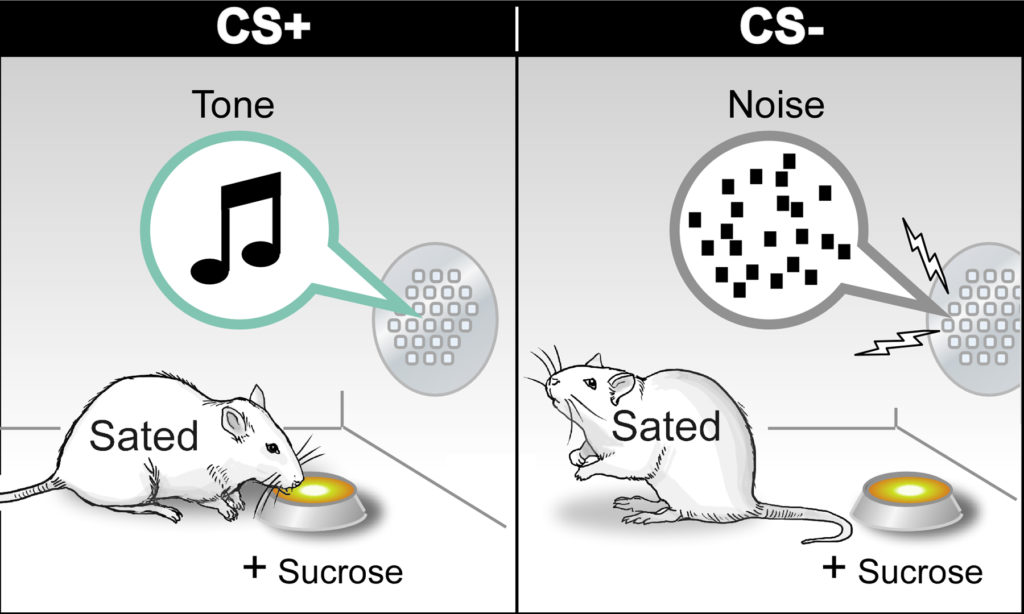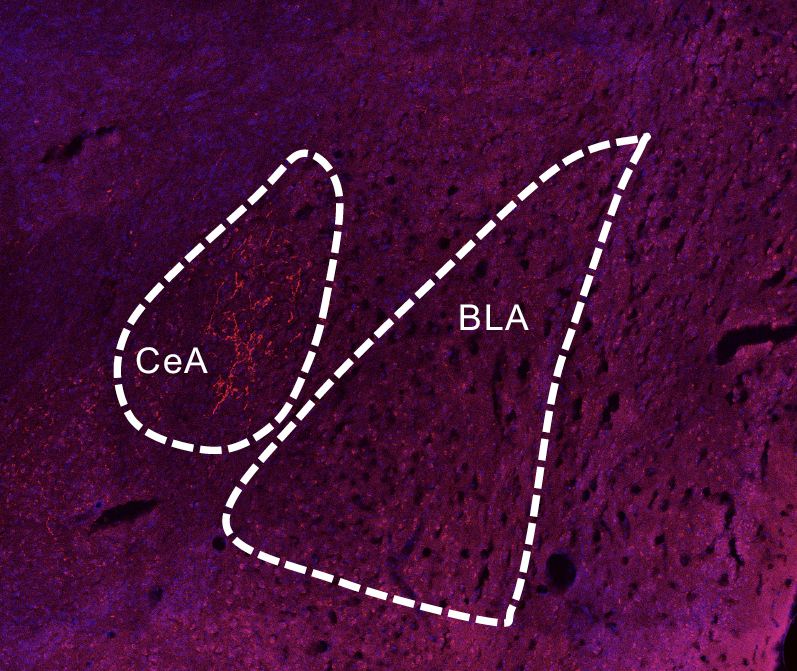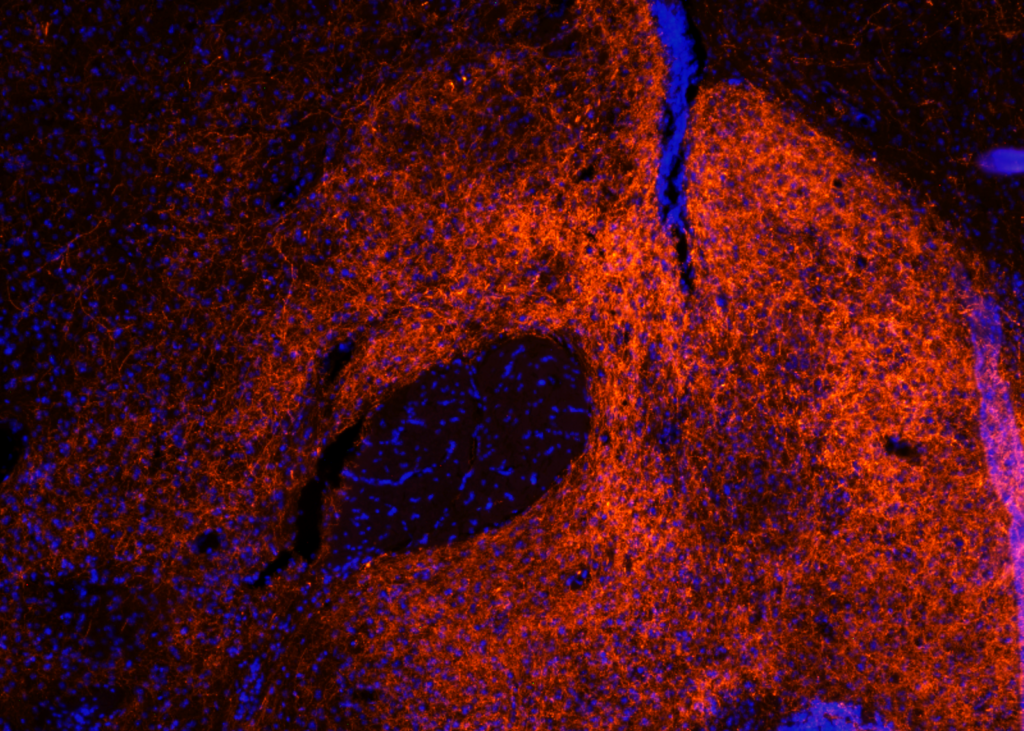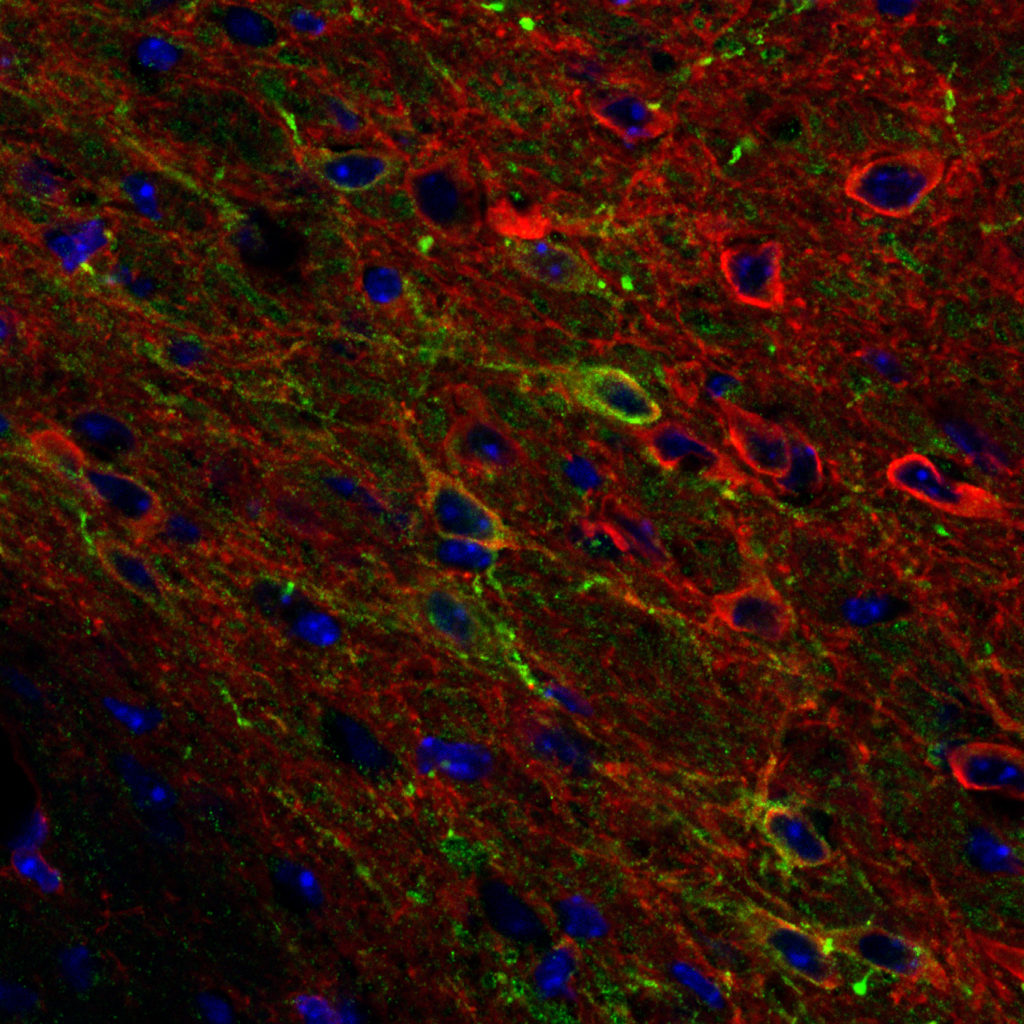Learning and Motivation
In order to deconstruct the neuronal basis of behavior, one must first understand the mechanisms underlying the behavior itself. These studies adopt sophisticated Pavlovian and instrumental procedures to examine the psychobiological variables underlying learning and decision-making.
Ingestive Behavior
In today’s obesogenic environment many individuals struggle to regulate caloric intake, which leads to obesity and associated comorbidities. As obesity rates continue to rise, there is a critical need to develop effective strategies to combat this epidemic. These studies examine the psychological and neurobiological variables underlying the regulation and dysregulation of energy intake.
- Ghrelin’s influence on cue-evoked food seeking and intake
- Melanin Concentrating Hormone and cue-potentiated feeding
- Melanin Concentrating Hormone and orexin interactions within the lateral hypothalamus
Neuropsychiatric Illness
Dysfunctions related to pleasure and reward are a hallmark of many neuropsychiatric illnesses (e.g., depression, schizophrenia). These studies identify endophenotypes of neuropsychiatric illness using animal models.
Dopamine and Learning
Studies explore the role of dopamine in associative learning and decision-making. These studies use optogenetic and chemogenetic procedures to selectively stimulate and inhibit midbrain circuitry with a high degree of spatial and temporal resolution.
- The role of the D2 receptor in effort-based decision-making
- Optogenetic and chemogenetic manipulation of mesencephalic dopamine



